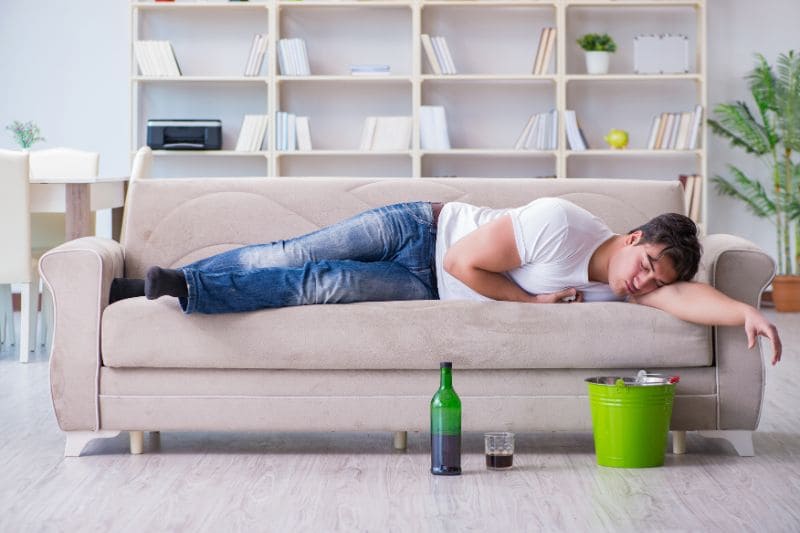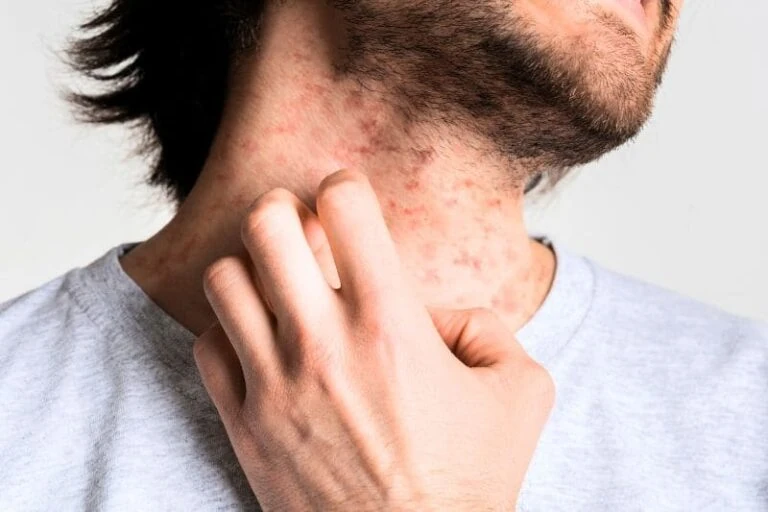Sauna for Hangover: Myth or Miracle?

Oh boy, here we go again. You’ve woken up feeling like you’ve been hit by a freight train; your head’s pounding, and the room won’t stop spinning. Yep, it’s the dreaded hangover.
But wait! Before you reach for that greasy breakfast or the hair of the dog, let’s talk about a hangover remedy that’s been steaming up conversations lately: the sauna. That’s right, using a sauna for hangover relief is becoming a hot topic (pun intended).
But does sweating it out in a hot box really help cure your hangover? Or is it just a load of hot air? Grab a glass of water (trust me, you’ll need it), and let’s dive into the steamy world of saunas and hangovers!
Key Takeaways:
- Saunas may offer some relief for hangover symptoms, but they’re not a miracle cure.
- Potential benefits include improved circulation and relaxation.
- Risks include increased dehydration and cardiovascular stress.
- Use saunas cautiously when hungover: limit sessions to 10-15 minutes and stay hydrated.
- Alternative remedies like hydration, nutrient replenishment, and rest are often safer.
- Prevention remains the most effective strategy against hangovers.
- Scientific evidence specifically supporting sauna use for hangovers is limited.
- Cultural traditions, especially in Finland, incorporate saunas into post-drinking rituals.
| Medical Disclaimer The information provided in this article is for educational purposes only and is not intended as medical advice. Always consult with a qualified healthcare professional before starting any new health regimen, including the use of saunas. The author and publisher of this content are not responsible for any adverse effects or consequences resulting from the use of any suggestions, preparations, or procedures described in this article. |
Table of Contents
The Science Behind Hangovers
First things first, what exactly is a hangover? It’s that miserable bundle of symptoms you experience after a night of too much boozing. We’re talking headaches, nausea, fatigue, and that general feeling of “Why did I do this to myself?” Sound familiar?
But here’s the kicker: hangovers aren’t just your body’s way of punishing you for having too much fun. There’s some serious science behind why you feel like death warmed over.
Dehydration
Alcohol is a diuretic, which means it makes you pee… a lot. This leads to dehydration, which is why you wake up feeling like you’ve been lost in the desert for days.
Electrolyte Imbalance
All that extra peeing doesn’t just deplete your water stores. It also messes with your electrolytes, those crucial minerals that keep your body functioning properly. Electrolyte imbalance can worsen symptoms. When they’re out of whack, you feel out of whack too.
Toxin Buildup
Here’s where it gets really interesting. When your liver breaks down alcohol, it produces a nasty little molecule called acetaldehyde. Acetaldehyde is a toxic compound responsible for many of your hangover symptoms. Your body works overtime to break it down, but in the meantime, it wreaks havoc.
Inflammation
Alcohol irritates the lining of your stomach and triggers your immune system. The result? Inflammation throughout your body, contributing to that overall feeling of blah.

Hangover 101: Symptoms That Make You Question Everything
We’ve all been there. You wake up and instantly regret every decision that led to this moment. But what exactly is your body going through? Let’s break down the most common hangover symptoms:
- Headache: From mild throbbing to full-on jackhammer.
- Fatigue: Even your eyelashes feel heavy.
- Nausea and Vomiting: Your stomach’s revenge tour.
- Dizziness: The room’s spinning, but the party’s definitely over.
- Hypersensitivity: Suddenly, you’re part bat, part vampire.
Remember, hangovers are as unique as your drunk karaoke performance. Factors like alcohol quantity, type, and your body’s tolerance all play a role in your morning-after experience.
How Saunas Affect the Body
Now, let’s talk saunas. These sweat-inducing chambers have been used for centuries, and not just because they feel good. Saunas can have some pretty impressive effects on your body.
Types of Saunas
There’s more than one way to sweat:
- Traditional saunas: Hot and dry, typically heated with wood or electricity.
- Infrared saunas: Use light waves to heat your body directly.
- Steam rooms: Hot and humid, great for that tropical vacation feel.
Read my in-depth article on the types of saunas.
Physiological Effects
When you step into a sauna, your body goes through some changes:
- Your heart rate increases, similar to when you exercise.
- You start sweating… a lot.
- Your blood vessels dilate, improving circulation.
These effects are why some people swear by saunas for everything from stress relief to detoxification. But can they really help with hangovers?
How Saunas Could Alleviate Hangover Symptoms
Now, let’s get to the meat of the matter: can sweating it out in a sauna actually help with these hangover symptoms? Here’s what the sauna enthusiasts claim:
Detoxification Station
The idea is that sweating helps flush out those pesky alcohol toxins. While your liver is doing the heavy lifting, some believe that sweating can give it a helping hand. The increased blood flow from the heat might help your body process the remaining alcohol faster.
Mood Boost, Courtesy of Endorphins
Feeling grumpy? (Who isn’t when hungover?) Saunas might help with that. The heat can trigger the release of endorphins, those feel-good chemicals that act like nature’s mood lifters. It’s like a warm hug for your brain.
Headache and Muscle Ache Relief
The improved circulation from sauna use might help ease that pounding headache and those achy muscles. It’s like a full-body massage, minus the awkward small talk with a massage therapist.
Nausea Reduction
Some folks swear that the relaxation and improved circulation from saunas help settle their queasy stomachs. It’s not exactly scientific, but if it works, it works, right?
Here’s a quick rundown of how saunas might tackle your hangover symptoms:
| Hangover Symptoms | Sauna Effects |
|---|---|
| Nausea | Improved detoxification and relaxation could settle the stomach |
| Fatigue | Increased circulation might boost energy |
| Headache | Improved blood flow may ease pain |
| Muscle Aches | Heat may relax tense muscles |
| Anxiety | Endorphin release could improve outlook |
So, while a sauna session might make you feel better (or at least distract you from your misery for a bit), it’s not a magical hangover eraser. As with most hangover remedies, your mileage may vary.

Potential Risks of Using Saunas for Hangover Relief
Before you rush off to the nearest sauna, hold up! There are some serious risks to consider when you’re already battling a hangover.
- Increased Dehydration: Remember how we talked about alcohol dehydrating you? Well, saunas can make this worse. You’re already low on fluids, and sweating buckets isn’t going to help. This could lead to severe dehydration, which is no joke. We’re talking dizziness, rapid heartbeat, and in extreme cases, it could even be dangerous.
- Cardiovascular Stress: Hangovers put stress on your heart. Throw a sauna into the mix, and you’re asking your ticker to work overtime. The heat causes your heart rate to increase and blood vessels to dilate. If you have any underlying heart conditions, this could be risky business.
- Heat Exhaustion and Heat Stroke: When you’re hungover, your body’s temperature regulation might be off. Sitting in a sauna could lead to heat exhaustion or even heat stroke. Symptoms like nausea, headache, and dizziness can be similar to hangover symptoms, making it hard to know when you’re in trouble.
- Alcohol Interactions: Got any alcohol still in your system? A sauna could speed up its absorption, potentially making you feel drunk again. Talk about one step forward, two steps back!
The Sauna-Hangover Connection: Myth or Miracle?
So we’ve heard the claims, but let’s dig a little deeper. Is the sauna really a hungover person’s best friend, or are we just grasping at steamy straws?
What Science Says
Here’s the kicker: while those potential benefits sound great, the scientific evidence is about as clear as your memory of last night. Most studies on saunas don’t specifically look at hangovers. It’s like trying to find a specific drop of sweat in, well, a sauna.
Expert Opinions
Health pros aren’t exactly jumping on the sauna-for-hangovers bandwagon. Most experts say that while saunas can be great for your health in general, they’re not a magic hangover eraser. In fact, they warn it could make things worse if you’re not careful. Yikes!
The Verdict
So, what’s the deal? Well, it’s complicated. Saunas might help some people feel better, but they’re not a guaranteed cure. It’s like trying to fix a bad haircut with a hat – it might help, but it’s not solving the root problem.
And here’s the thing: remember those risks we mentioned earlier? They’re still lurking around, ready to turn your hangover recovery into an even bigger headache (literally).
Related: Can You Sweat Out Alcohol in a Sauna?
Safe Sauna Practices for Hangover Recovery
If you’re going to use a sauna while hungover, do it safely by following these safe sauna practices:
- Hydration is Key: Drink water like it’s going out of style before, during, and after your sauna session. And we’re talking water here, not the hair of the dog! Electrolyte drinks can be helpful, too, but avoid anything with caffeine or more alcohol – they’ll only dehydrate you more.
- Time and Temperature: Keep it short and sweet. When you’re hungover, limit your sauna session to about 10-15 minutes max. And dial down the heat a notch from what you’d normally use. Your hungover body will thank you.
- Listen to Your Body: Feeling dizzy? Nauseous? Get out of there! Your body’s trying to tell you something, and it’s not “Please, cook me some more.” Don’t ignore these warning signs.
- Cool Down Gradually: After your sauna session, don’t jump straight into a cold shower. Gradually cool down with a lukewarm shower or by simply sitting in a cooler room. This helps your body adjust and prevents any sudden shocks to your system.

Alternative Hangover Remedies
Let’s face it: saunas aren’t for everyone. Luckily, there are plenty of other ways to tackle that hangover.
- Hydration Strategies: Water is your best friend, but electrolyte drinks can also help. Sports drinks, coconut water, or even homemade oral rehydration solutions can help replace what you’ve lost.
- Nutrient Replenishment: Your body’s running low on vitamins and minerals. Foods rich in potassium (like bananas) can help with electrolyte balance. Eggs contain cysteine, which may help break down acetaldehyde. And don’t forget about B vitamins – they play a crucial role in metabolism.
- Rest and Sleep: Sometimes, the best cure is to hit the snooze button. Your body needs time to recover, so don’t feel bad about spending a day in bed. Quality sleep can help your body heal and reset.
- Over-the-Counter Relief: Painkillers can help with that headache, but be careful. Acetaminophen (like Tylenol) can be hard on your already-stressed liver. Ibuprofen (like Advil) might be a safer bet, but it can irritate your stomach. Always follow dosage instructions.
- Natural Remedies: Ginger can help with nausea – try ginger tea or candied ginger. Some people swear by prickly pear extract for reducing hangover symptoms. Just don’t expect miracles – these aren’t magic cures.
Prevention: The Best Cure for Hangovers
Look, we’ve all heard it before, but it bears repeating: the best way to cure a hangover is to prevent it in the first place. Yeah, yeah, I know – easier said than done. But hear me out.
- Moderation is Key: I’m not here to preach, but let’s be real – drinking less means feeling better the next day. It’s simple math, folks. Try to stick to the recommended guidelines: that’s generally up to one drink per day for women and up to two for men.
- Eat Before You Drink: Ever heard the phrase “line your stomach”? It’s not just an old wives’ tale. Food slows down alcohol absorption, giving your body more time to process it. Opt for foods high in protein and healthy fats – they’ll stick around longer.
- Choose Your Poison Wisely: Not all drinks are created equal. Darker alcohols like whiskey and red wine have more congeners – compounds that can make hangovers worse. Stick to clearer spirits if you want to minimize the morning-after misery. But remember, too much of any alcohol can lead to a hangover.
- Water, Water Everywhere: Alternate your drinks with water. It’ll slow down your alcohol consumption and keep you hydrated. Try to match each alcoholic drink with a glass of water.
Cultural Perspectives on Saunas and Hangovers
Interestingly, the idea of using saunas for hangover relief isn’t new. In some cultures, it’s practically tradition.
The Finnish Connection
In Finland, where the word “sauna” originates, using a sauna after a night of drinking is a common practice. The Finns have been doing this for centuries, often combining hot sauna sessions with plunges into cold water or snow. Talk about a wake-up call!
Must Read: Finnish Sauna Culture
Social Aspect
In many cultures, the sauna isn’t just about sweating – it’s a social experience. Some people find that the communal aspect of sauna use, combined with the physical effects, can help ease the psychological symptoms of a hangover, like anxiety or irritability.
Conclusion
So, there you have it – the lowdown on saunas and hangovers. While the idea of “sweating it out” might sound appealing when you’re feeling rough, the science doesn’t quite back it up as a miracle cure. In fact, it could potentially make things worse if you’re not careful!
If you do decide to hit the sauna after a night out, remember that moderation is key. Stay hydrated, listen to your body, and don’t overdo it. And hey, maybe save that sauna session for when you’re feeling 100% – it’ll be a lot more enjoyable that way.
At the end of the day, the best hangover cure is prevention. Drink responsibly, stay hydrated, and know your limits. Your body (and head) will thank you in the morning.
Remember, everyone’s different. What works for your friend might not work for you. So, experiment (safely), find what helps you feel better, and most importantly, take care of yourself.

“Become a Sauna Expert Overnight!”
Grab Your “FREE” Sauna E-book NOW!
Get your hands on the ultimate sauna manual. From history to DIY setups, our free guide has it all.

As a Chartered Accountant turned sauna enthusiast, I bring a unique blend of analytical skills and hands-on experience to the world of heat therapy. With over a decade dedicated to researching and testing sauna products and practices, I’ve developed a deep understanding of this field. A the founder of HomeInDepth.com, I provide reliable, easy-to-understand information on all aspects of saunas. My goal is to guide you through every step of your sauna journey, offering meticulously researched, unbiased advice to help you make informed decisions and create your perfect sauna experience. I’m always happy to hear from sauna lovers like you—feel free to leave questions or share your own tips in the comments below so we can learn together. Contact me on:







One Comment